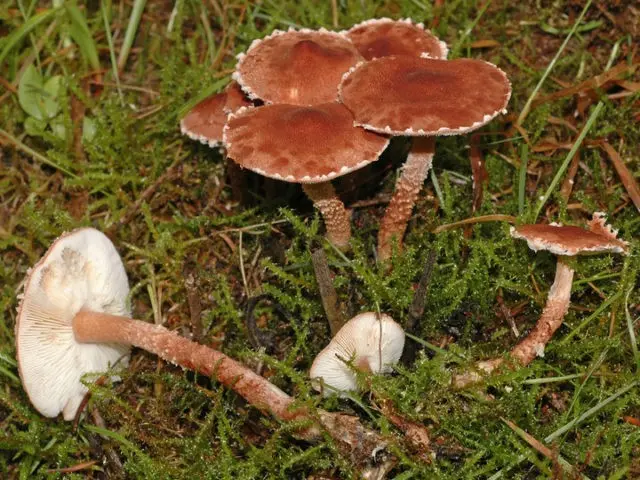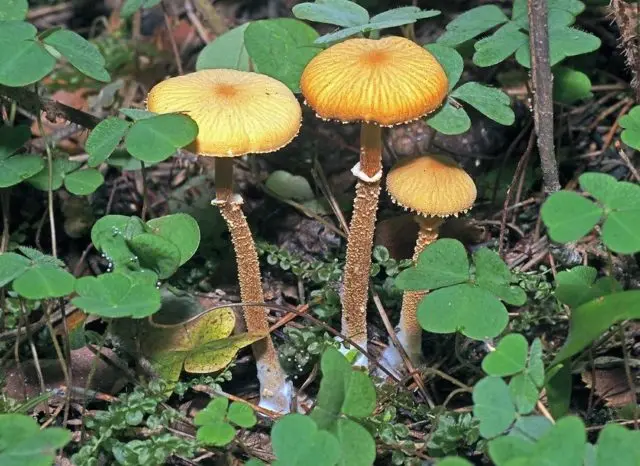Contents
Cystoderma red is an edible representative of the Champignon family. The species is distinguished by a beautiful red color, prefers to grow from July to September among spruce and deciduous trees. In order not to make a mistake during mushroom hunting and not to put false twins in the basket, you need to study the external features of the species.
What does cystoderm red look like?
Cystoderma red is a bright, but not often seen species of the mushroom kingdom. To recognize it and not confuse it with poisonous counterparts, you need to know the description of the mushroom and carefully read its photo.
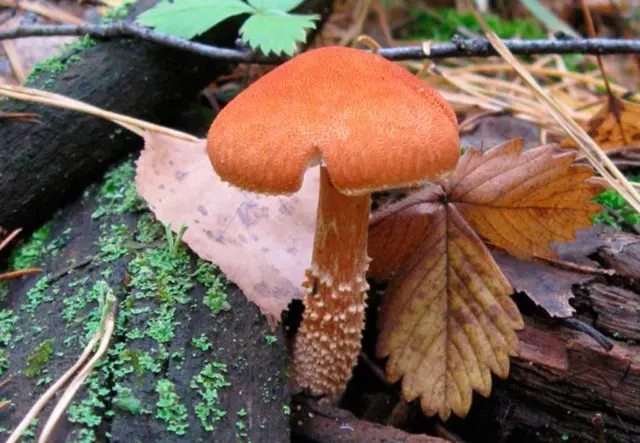
Cap Description
The cap is small, no more than 8 cm in diameter. In young specimens, it has a bell-shaped appearance, straightens out in adulthood, leaving a small mound in the center. The bright orange surface is decorated with smooth, fine-grained, red scales.
The spore layer is formed by thin frequent plates of whitish or coffee color. The plates are fragile, partially adherent to the stem. The species reproduces by oblong spores.
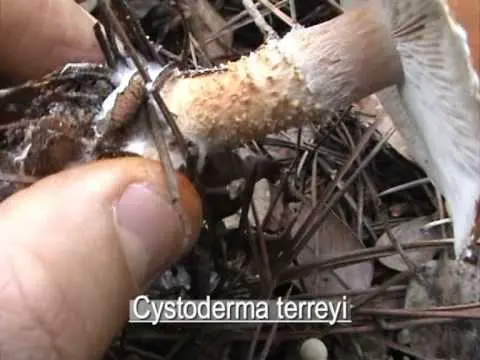
Description of the leg
The leg is oblong in shape, up to 5 cm long. Inside it is hollow and fibrous, thickens downwards. The surface is covered with numerous granular scales of pink or light red color. Discolors as it matures.
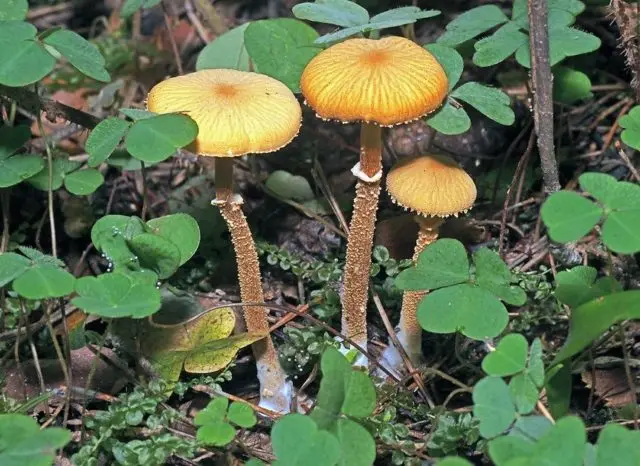
Is the mushroom edible or not?
This representative is edible, has a whitish pulp with a pleasant mushroom aroma and taste. Before cooking, the collected mushrooms are boiled for several minutes, fried, stewed and preserved.
Where and how to grow
Cystoderma prefers to grow among coniferous trees in small families, less often single specimens, in regions with a temperate climate. It begins fruiting from July to early October. Picking mushrooms is best done in dry, sunny weather, away from highways and industrial enterprises.
Twins and their differences
This representative has similar twins. These include:
- grainy – a conditionally edible species with an ovoid hat of brown-orange color. The pulp is dense, odorless and tasteless. It grows in coniferous forests in small families. Fruiting occurs from August to October.

- Amiantovaya – a conditionally edible mushroom with a convex small cap and a long cylindrical leg. The flesh is light, tasteless, but with a slight unpleasant odor. It grows among coniferous and deciduous trees from August to October.

Conclusion
Cystoderma red is an edible representative of the mushroom kingdom. Often it can be found in coniferous forests from July to October. Before cooking, the collected mushrooms are thoroughly soaked and boiled. Prepared cystoderms are good fried, stewed and canned. Experienced mushroom pickers are advised to pass by unknown specimens so as not to harm themselves and their loved ones.










